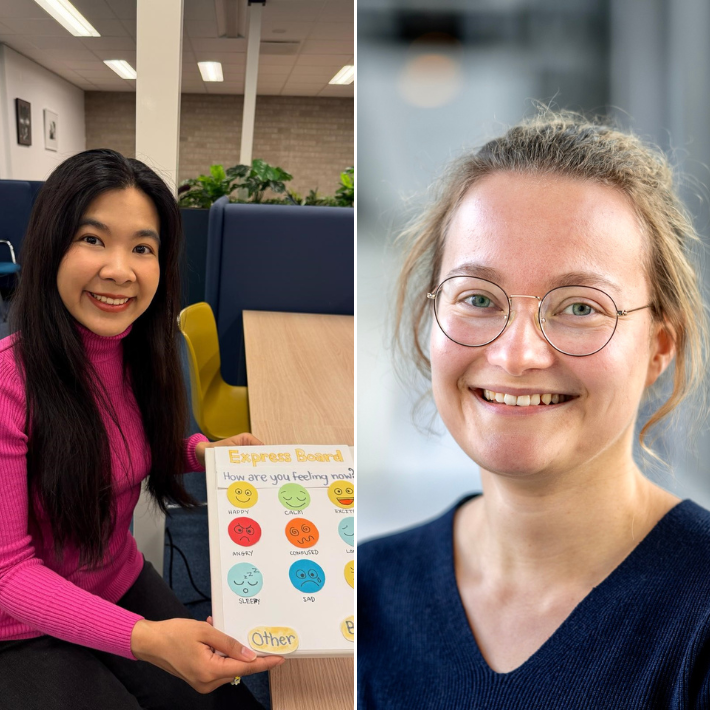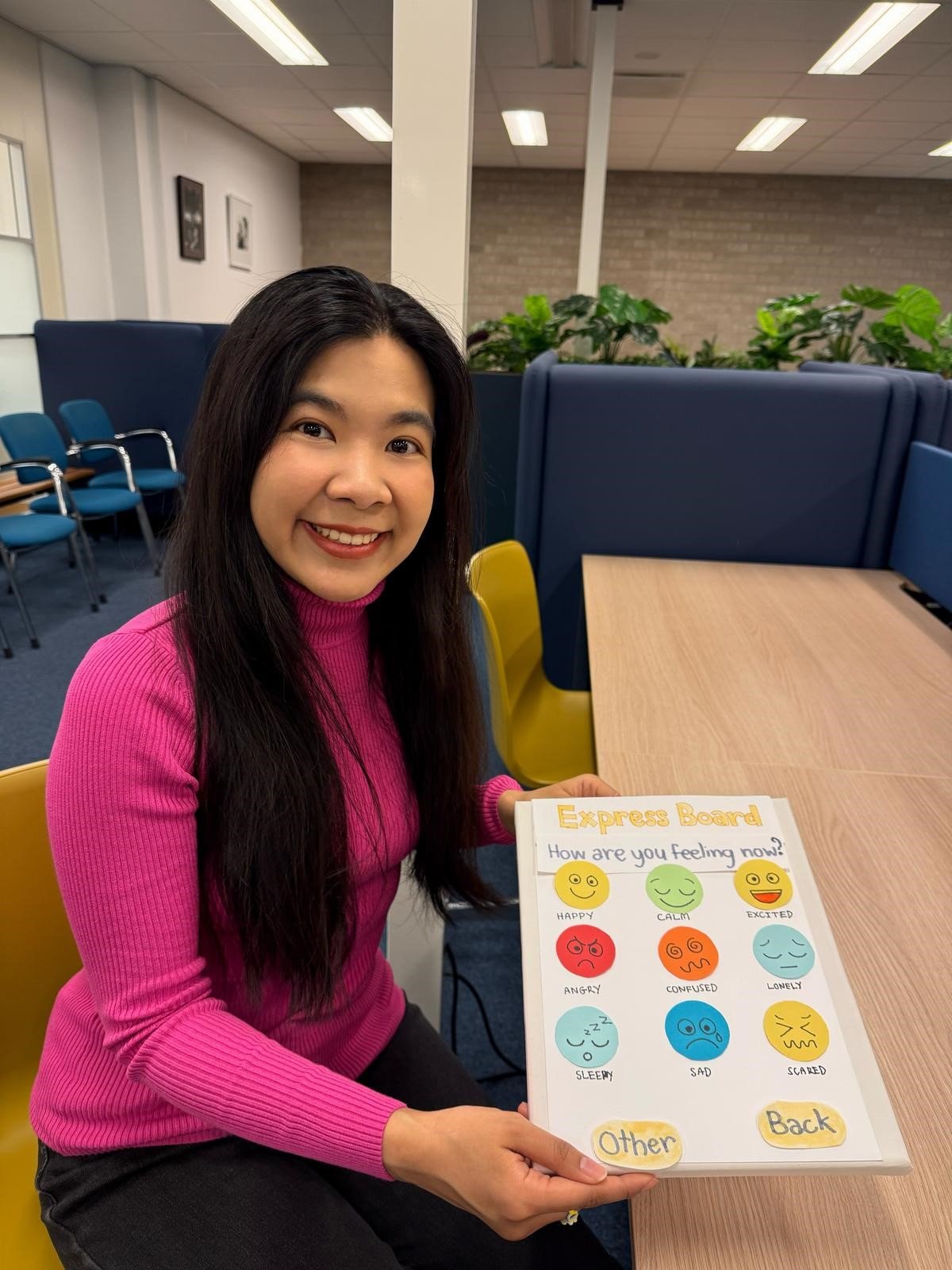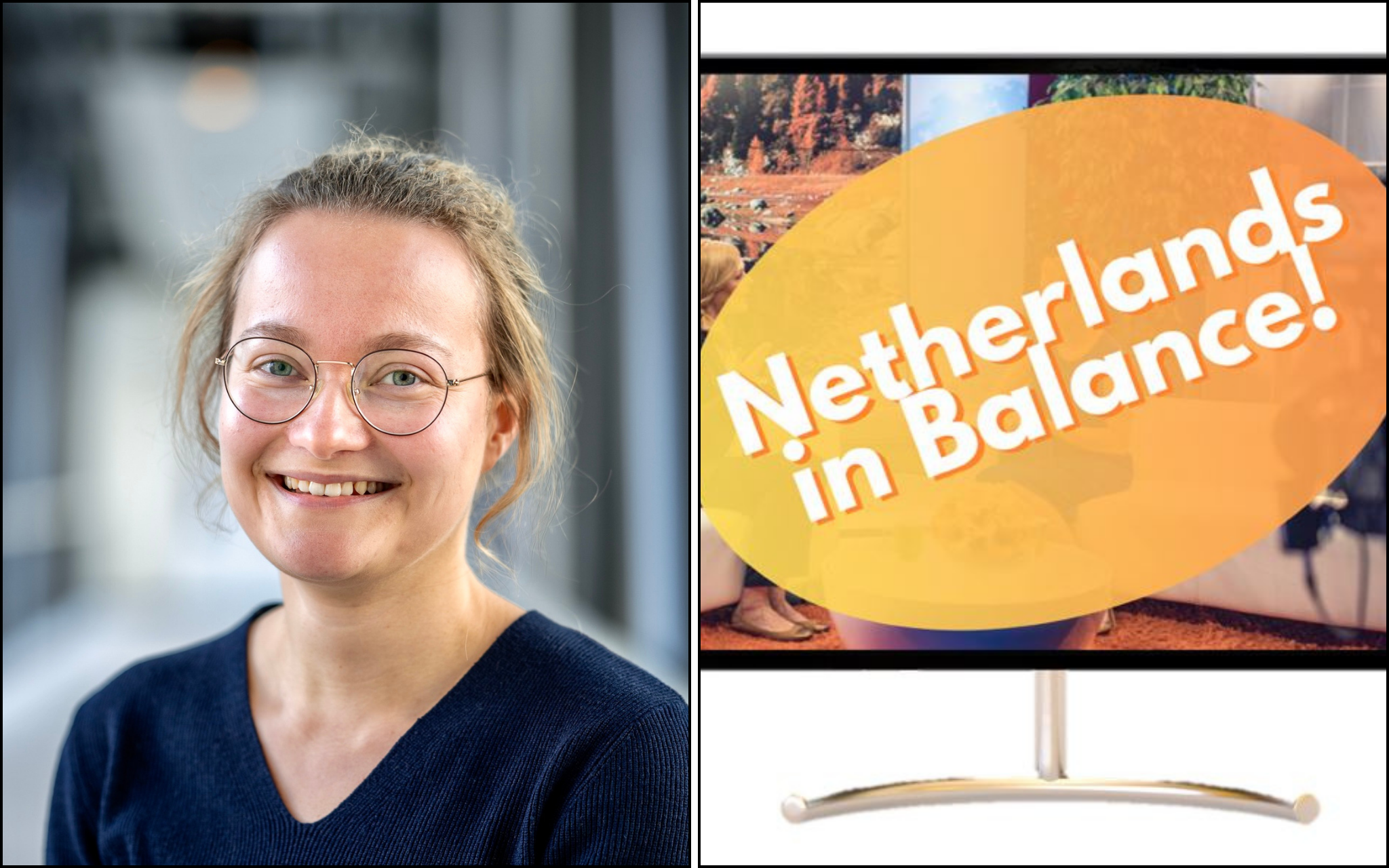How innovations from Leiden students can improve the well-being of grandpa and grandma (and maybe even all of us)
&width=710&height=710)
Imagine: you have theoretically come up with a brand-new innovation as a solution to a challenge faced by an older person. Modern, using the latest techniques. Unfortunately, it turns out not to work in practice because it does not align with the factors that originally caused the challenge. That’s too bad.
Therefore, master's students of Health, Ageing and Society learn to approach innovations not from the solution, but from the problem. Using the so-called design-thinking method, they first map out the problem with various factors. Then, they work on creative solutions and prototype development. During the process, they stay in contact with older persons from the Ouderenberaad Zorg & Welzijn regio Zuid-Holland Noord (Elderly Council). This way, the innovation seamlessly meets the needs.
But what kind of innovations should we think of?
The Express Board
 There are diseases that can make communication difficult over time. Think, for example, of Parkinson's disease or ALS. Nawasiri Siriprasert is a master's student and thought of a tool that was used in her family for an older person who had difficulty communicating. They wrote down a number of personal favorite dishes on paper. The older person only had to point to the desired menu of the day. Siriprasert: "If we can further develop and make this more flexible, for example in one device, it would be very useful for families and caregivers. And not just for dishes, but for other things as well."
There are diseases that can make communication difficult over time. Think, for example, of Parkinson's disease or ALS. Nawasiri Siriprasert is a master's student and thought of a tool that was used in her family for an older person who had difficulty communicating. They wrote down a number of personal favorite dishes on paper. The older person only had to point to the desired menu of the day. Siriprasert: "If we can further develop and make this more flexible, for example in one device, it would be very useful for families and caregivers. And not just for dishes, but for other things as well."
Functionality and simplicity were important factors for the innovation. "A touchscreen was not our preference. If someone has trembling hands, they might accidentally press the wrong digital button. Additionally, not all older people are equally skilled with it. On the other hand, flexibility for the family and caregivers is also important. Printing hundreds of sheets of paper is not feasible."
"We spoke with the Elderly Council twice. Where I was initially hesitant about a digitized version, they indicated that it was perfectly fine. As long as it is easy to use. This led us to the idea of a digital version with physical buttons. These can be customized with different questions. For example, what you want to do today. Or how you feel. This way, the device is flexible for the family and caregivers and easy to use for an older person."
Picture: Nawasiri Siriprasert with a very early prototype of The Express Board
Netherlands in Balance
 Another innovation focuses on the sense of balance in life. Older people sometimes feel out of balance due to various factors. For example, loss of health, loved ones, loneliness, but also concerns about the state of the world. Karin Stratingh drew her inspiration from the television program Nederland in Beweging (Netherlands in Motion).
Another innovation focuses on the sense of balance in life. Older people sometimes feel out of balance due to various factors. For example, loss of health, loved ones, loneliness, but also concerns about the state of the world. Karin Stratingh drew her inspiration from the television program Nederland in Beweging (Netherlands in Motion).
She came up with a version for mental health to increase the mental resilience of older people. Stratingh: "What I love about the program Nederland in Beweging is that it is on television every day. You can just participate from your living room. How wonderful would it be if there was also a program that focuses more on mental health?"
Stratingh researched methods and exercises that can help with this. "These include breathing or mindfulness exercises. But also tips on how to deal with certain situations, chair yoga, and elements from positive psychology. For the latter, you could ask viewers to write down three things that went well today."
Stratingh also spoke with the Elderly Council about her ideas. "They indicated that this is a very accessible way to work on mental health yourself. Some people experience a barrier to going to the doctor, a practice nurse, or a psychologist. This program is not a treatment, but it can be a low-threshold step to engage more with it. Moreover, they said: 'If it's on television, I would follow it.' I found that very nice to hear. And it might not only be beneficial for older people but also for others who want to be more balanced."
Picture: Karin Stratingh and an example of Netherlands in Balance on television.
Future
The students presented the innovations to the Elderly Council, teachers, and fellow students during a concluding, festive afternoon with final presentations. Both Siriprasert and Stratingh would like to continue with their innovations. What do they need for this? Other professionals who can help with coding or, for example, a Dutch broadcaster who can actually bring the idea to television. Who knows, we might soon see the ideas that originated in a LUMC classroom in practice. For now, the students have gained a lot of knowledge to take into the future.
Do you want to know more about the master's program Health, Ageing and Society? Here you can find more information.
